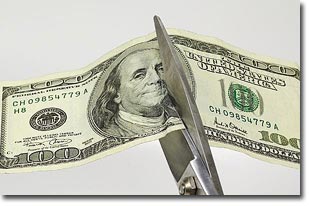Read the whole article here: MARKETS AND ANTIMARKETS IN THE WORLD ECONOMYFirst of all, if capitalism has always relied on non-competitive practices, if the prices for its commodities have never been objectively set by demand/supply dynamics, but imposed from above by powerful economic decision-makers, then capitalism and the market have always been different entities. To use a term introduced by Braudel, capitalism has always been an "antimarket". This, of course, would seem to go against the very meaning of the word "capitalism", regardless of whether the word is used by Karl Marx or Ronald Reagan. For both nineteenth century radicals and twentieth century conservatives, capitalism is identified with an economy driven by market forces, whether one finds this desirable or not. Today, for example, one speaks of the former Soviet Union's "transition to a market economy", even though what was really supposed to happen was a transition to an antimarket: to large scale enterprises, with several layers of managerial strata, in which prices are set not taken. This conceptual confusion is so entrenched that I believe the only solution is to abandon the term "capitalism" completely, and to begin speaking of markets and antimarkets and their dynamics. - Manuel De Landa
Further reading:
- Anti-Pattern Capitalism
- The Ancient Taberna in a Future World
- Does smart growth reduce carbon emissions? Bet the house on it.
- Bernard E. Harcourt on the illusion of self-regulating ‘free markets’




No comments:
Post a Comment
Note: Only a member of this blog may post a comment.